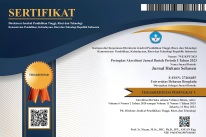Critical Analysis Of The Implementation Of Restorative Justice In The Criminal Justice System In Indonesia
Abstract
This article comprehensively analyzes the implementation of restorative justice in the Indonesian criminal justice system, covering policy aspects, implementation at various levels of law enforcement (police, prosecutors, courts), as well as challenges and prospects for its development. This research uses a normative juridical approach with case studies and prescriptive analysis, examining various laws and regulations, court decisions, and related scientific literature. Key findings indicate that although the legal framework for restorative justice has developed significantly in Indonesia, its implementation still faces inconsistencies between institutions, resistance to the retributive paradigm, resource constraints, and a lack of public understanding. Case studies demonstrate partial success, particularly in cases of minor crimes and juvenile offenses, but challenges remain prominent in more complex cases such as Domestic Violence (DV). Therefore, regulatory harmonization, capacity building of law enforcement officers, and extensive public outreach are needed to optimize the potential of restorative justice in realizing substantive justice and social recovery.
Downloads
Copyright (c) 2025 M. Erry Sugiharto

This work is licensed under a Creative Commons Attribution-ShareAlike 4.0 International License.






